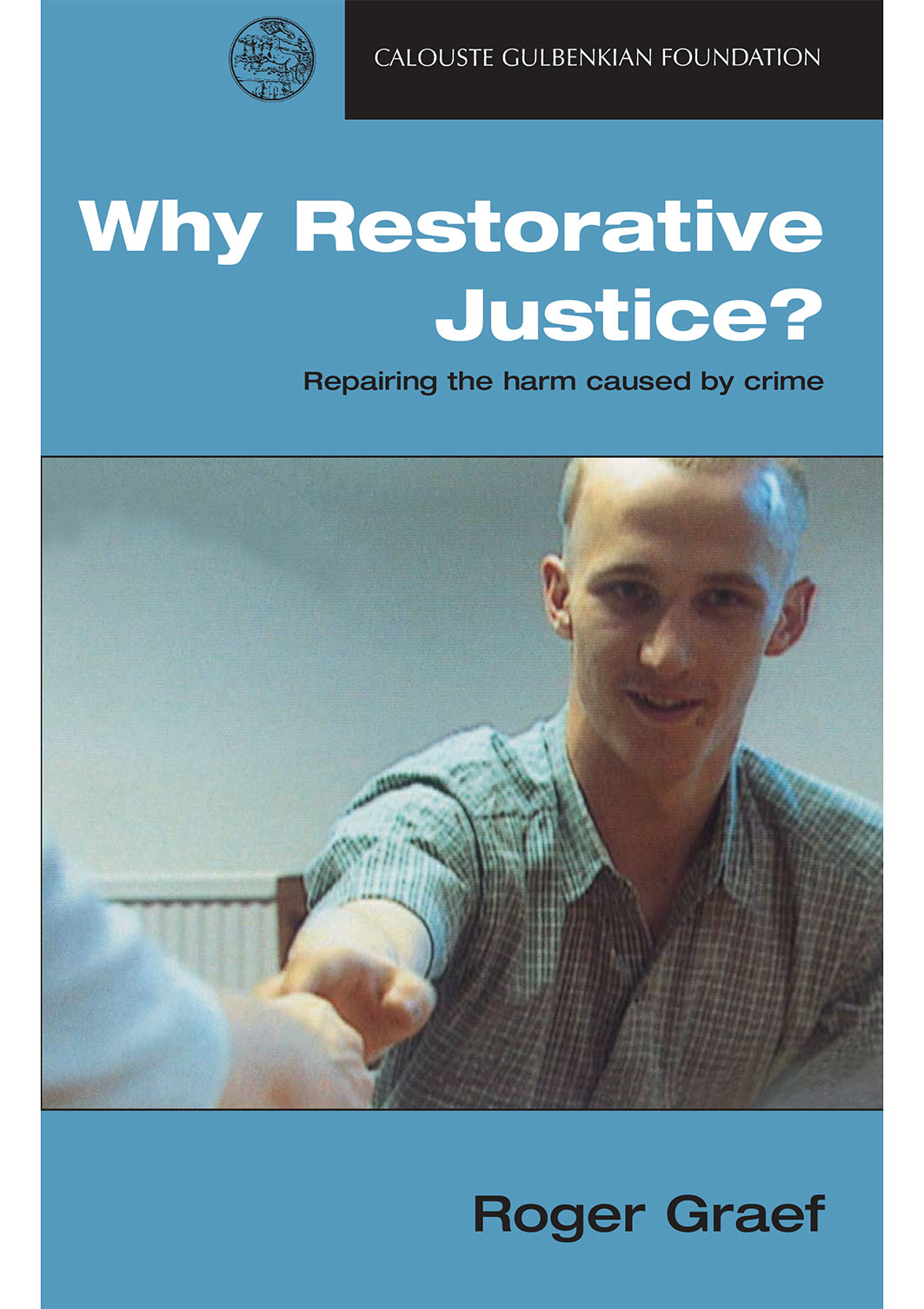Why Restorative Justice?

Repairing the harm caused by crime
Roger Graef
2001
Restorative justice is an idea whose time has come. It means restoring the balance disturbed by crime, and making good the harm caused to those concerned. It involves victim and offender – and includes friends, families and communities. It gives space for victims to explore issues they cannot raise in court, and for offenders to take greater responsibility for their actions – helping to ensure the harm does not happen again. Restorative justice is not just about face-to-face mediation. It can include other kinds of making good, from reparation and community service to community mediation of local conflicts.
Restorative Justice is embedded in law in New Zealand and its use is spreading across Canada, the USA and Australia. It is now being recognised in criminal and civil legislation in the UK. Roger Graef sets down the main principles and practices, and demonstrates their value and effectiveness. Using case studies throughout, his book offers the public and justice practitioners a guide to an approach which deserves a central place in our criminal justice procedures.
‘… a useful introduction to restorative justice, its origins and its progress which is illustrated by success stories from all over the world.’ Glenna Robson JP, The Magistrate
Roger Graef is a film-maker and criminologist who writes, lectures and broadcasts regularly on crime and media issues. He is Visiting Professor of Communication and Broadcast Media at the University of Oxford, and Visiting Fellow at the Mannheim Centre for Criminology, LSE. His films include the first film of a real Family Group Conference, Keeping it in the Family: What shall we do about James? (Channel 4); the award-winning BBC series on the Thames Valley Police; Race Against Crime (Channel 4); and In Search of Law and Order – USA (PBS and Channel 4). He is the author of Talking Blues: Police in their own words and Living Dangerously: Young offenders in their own words.
